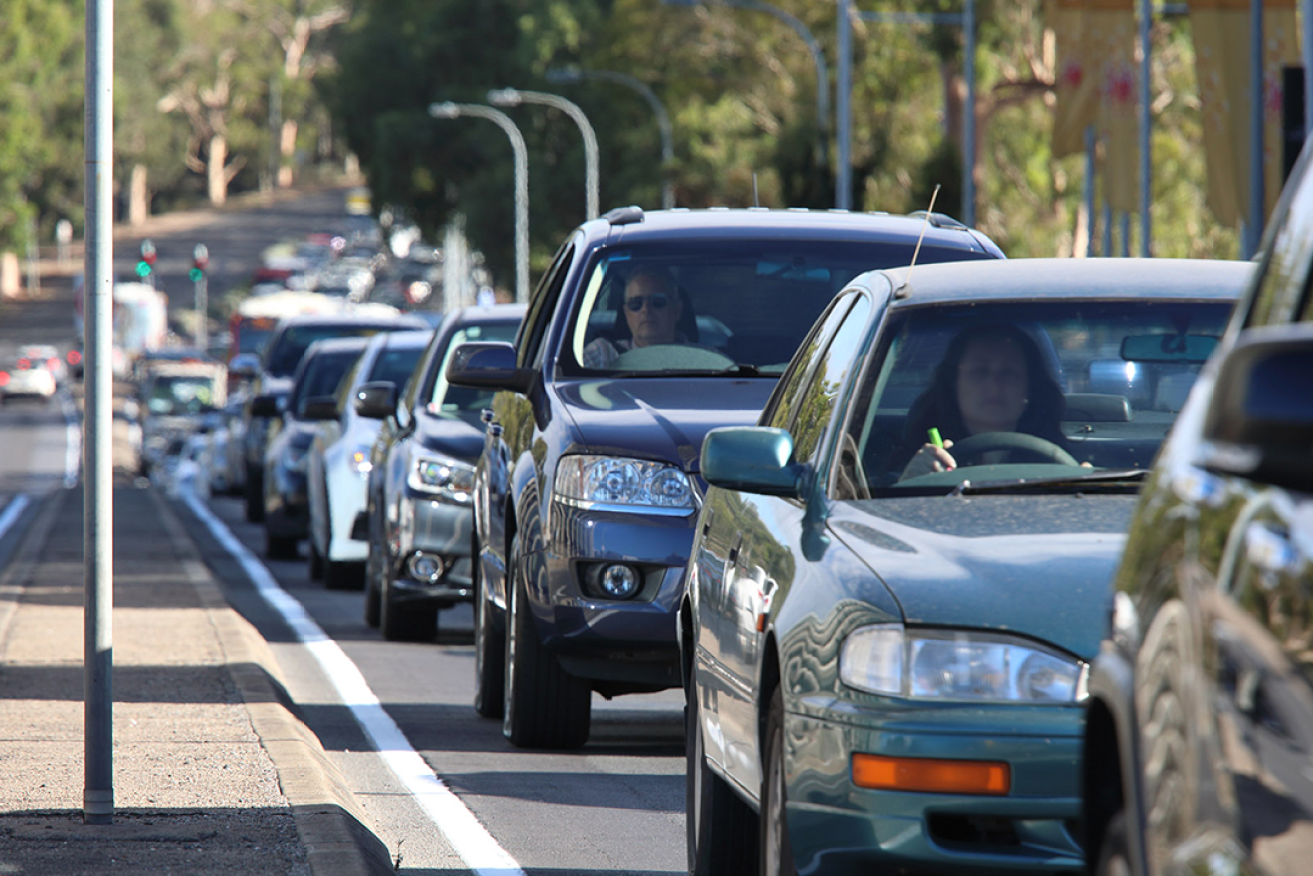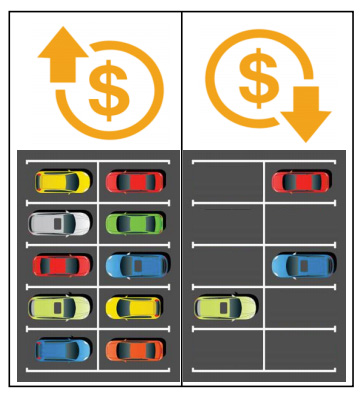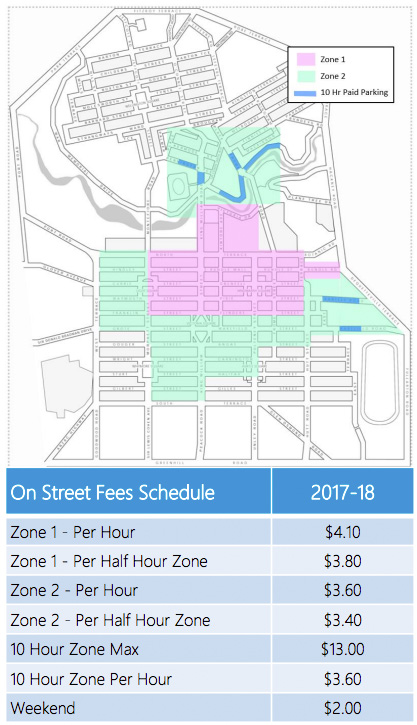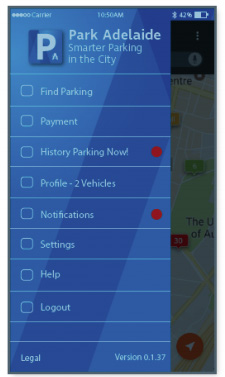‘Surge pricing’ mooted for car parks in Adelaide’s CBD
Demand-sensitive pricing could become an everyday feature of parking on the streets of Adelaide’s CBD as part of the city council’s smart-parking rollout.


Demand-responsive pricing could soon be part of the car parking experience in Adelaide's CBD. Photo: InDaily / Tony Lewis
The council plans to replace the majority of the city’s 2800 ticketed on-street car parks with “smart-parking” technology by the middle of the year – and eventually, all of them.
The smart parking program will see thousands of in-ground sensors installed in city car parks, and a new mobile application launched, to allow motorists to easily locate and pay for available parks.
A council staff report to be debated at tomorrow evening’s meeting says the technology could also be used to set prices for on-street parking in real time and change the price in response to demand.
The concept is somewhat like rideshare app Uber’s practise of “surge pricing”, where trips cost more during times of high demand, except that the change in cost would be only “slight”.

An info-graphic in the council report shows the demand-responsive pricing model: higher occupancy, higher price.
Increasing the price of a group of parking spots when few spaces are available – but lowering the price when many parks are available – would ensure that there are “always spaces available for those who need them” in key locations across the city, according to the report.
The mechanism would aim to promote an “ideal occupancy” level of 80 to 85 per cent.
It’s among a series of options to be presented to councillors at tomorrow evening’s meeting.
The mobile app would allow motorists to locate available parking spaces in real time, and give voice directions on how to get to them.

Paid parking zones in Adelaide’s CBD and North Adelaide.
The app would also remind motorists when their car park is due to expire and allow them to “top-up” the parking space, up to the maximum time limit, and show what the report describes as “easy-to-understand information” about the rules associated with a particular parking space.

What the Park Adelaide app might look like.
In past debates about car parking, North Ward councillor Susan Clearihan has argued that difficult-to-read parking signs were the cause of a significant proportion of unintended overstays in city car parks.
And in what the report describes as an Australian-first – the equivalent of which council staff members have also been unable to find internationally – the app could also offer a one-off 15-minute grace period, for a fee, letting users avoid expiation if they are unable or unwilling to get to their vehicle quickly enough.
Three pricing options are suggested in the report.
The 15-minute extension beyond the maximum time could cost $5.50, about 10 per cent of an expiation fee charge, or $9.40, which would cover the council’s costs, or $3.85 – the average cost of an hour’s weekday parking.
Responses to a survey of 400 people, conducted by the council, showed that commuters were happy to pay between $4.70 and $6.90 for the grace period,to avoid receiving a $51 expiation notice.
“We understand that ‘life happens’ and sometimes it’s difficult to get back to your vehicle on time,” the report says.
“An offer of a one-off 15 minute extension at a determined rate would provide customers an opportunity to delay returning to their vehicle.
“Since the option to extending a parking session beyond the maximum time limit is an Australian-first, we are unable to benchmark the offering or accurately predict usage or impacts.”
The paper advocates “moving toward an expiation-free environment” – a piece of rhetoric from the council’s strategic plan which Lord Mayor Martin Haese has previously acknowledged is hyperbolic.




